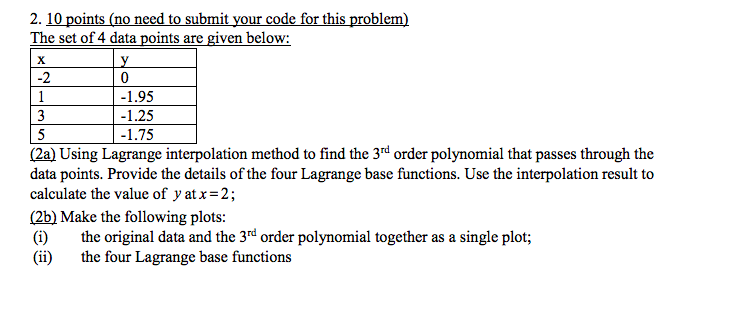Answered step by step
Verified Expert Solution
Question
1 Approved Answer
This is what I got down so far, but it doesn't run function Yint=LagrangeINT(x,y,Xint) %input variables: x=[-2,1,3,5] y=[0,-1.95,-1.25,-1.75] %Xint the x coordinate of the point
This is what I got down so far, but it doesn't run
function Yint=LagrangeINT(x,y,Xint)
%input variables:
x=[-2,1,3,5]
y=[0,-1.95,-1.25,-1.75]
%Xint the x coordinate of the point at which y is to be interplted
%out =put variable
%Yint the interpolated value of Xint
n=length(x)
for i=1:n
L(i)=1;
for j=1:n
if j~=i
L(i)=L(i)*(Xint-x(j))/(x(i)-x(j));
end
end
Yint=sum(y.*L);
end
end

Step by Step Solution
There are 3 Steps involved in it
Step: 1

Get Instant Access to Expert-Tailored Solutions
See step-by-step solutions with expert insights and AI powered tools for academic success
Step: 2

Step: 3

Ace Your Homework with AI
Get the answers you need in no time with our AI-driven, step-by-step assistance
Get Started


